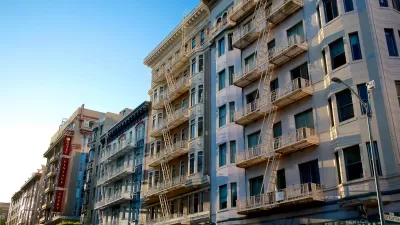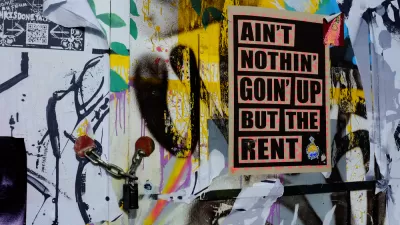The San Francisco Board of Supervisors voted earlier this week to allow property owners to rent “in-law units”—a major policy departure that could add tens of thousands of rental units to the constrained San Francisco real estate market.
Marisa Lagos reports on legislation that could potentially allow an estimated 30,000 to 50,000 existing in-law units to enter the rental market in San Francisco.
Despite the soaring cost of housing in San Francisco, the vote wasn’t without opposition. From the article by Lagos: “On Tuesday, the board voted 8-2 to let property owners voluntarily apply to legalize units built before Jan. 1, 2013. The vote came after more than an hour of debate and several attempts by Supervisor Norman Yee to weaken board President David Chiu's position. At a recent hearing, dozens of homeowners from Yee's district west of Twin Peaks turned out to vehemently oppose any attempts to legalize in-law units.”
The opposition from the west side of the city came from neighborhoods, whose residents have traditionally honored private contracts that detail rental rules for the neighborhood. A provision in the new law states that the city will not interfere with such agreements.
To pass muster for the legal rental market, “[property] owners will be allowed to ask city officials to ‘prescreen’ their units and, if any necessary upgrades are too expensive or difficult, the homeowner could drop his effort to legalize the unit without penalty.”
“To protect renters of the units - many of whom are low-income families and immigrants, according to Chiu - any legalized units would be covered by the city's rent-control ordinance and could not be sold as condominiums. The legislation also bars landlords from passing on to tenants the costs of upgrades to bring the apartments up to code and prevents property owners who have evicted someone in the past 10 years from legalizing their units.”
FULL STORY: S.F. supervisors vote to bring in-law units out of shadows

Planetizen Federal Action Tracker
A weekly monitor of how Trump’s orders and actions are impacting planners and planning in America.

Restaurant Patios Were a Pandemic Win — Why Were They so Hard to Keep?
Social distancing requirements and changes in travel patterns prompted cities to pilot new uses for street and sidewalk space. Then it got complicated.

Maui's Vacation Rental Debate Turns Ugly
Verbal attacks, misinformation campaigns and fistfights plague a high-stakes debate to convert thousands of vacation rentals into long-term housing.

In California Battle of Housing vs. Environment, Housing Just Won
A new state law significantly limits the power of CEQA, an environmental review law that served as a powerful tool for blocking new development.

Boulder Eliminates Parking Minimums Citywide
Officials estimate the cost of building a single underground parking space at up to $100,000.

Orange County, Florida Adopts Largest US “Sprawl Repair” Code
The ‘Orange Code’ seeks to rectify decades of sprawl-inducing, car-oriented development.
Urban Design for Planners 1: Software Tools
This six-course series explores essential urban design concepts using open source software and equips planners with the tools they need to participate fully in the urban design process.
Planning for Universal Design
Learn the tools for implementing Universal Design in planning regulations.
Heyer Gruel & Associates PA
JM Goldson LLC
Custer County Colorado
City of Camden Redevelopment Agency
City of Astoria
Transportation Research & Education Center (TREC) at Portland State University
Jefferson Parish Government
Camden Redevelopment Agency
City of Claremont





























